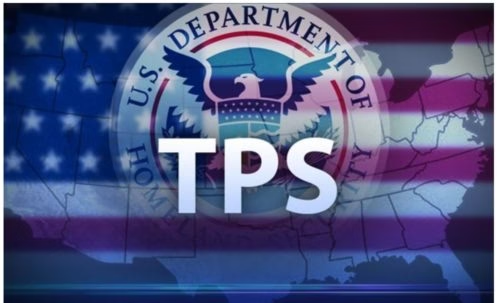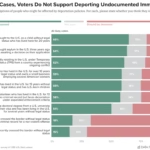A federal judge suspended, on March 31, the Trump administration’s decision to terminate the Temporary Protected Status (TPS) granted to Venezuelan nationals residing in the United States. This ruling has effectively blocked the termination that would have stripped protections from approximately 350,000 people, offering a momentary relief to countless immigrant families.
TPS serves as a humanitarian initiative providing temporary sanctuary to citizens from nations experiencing natural catastrophes, armed conflicts, or other extraordinary circumstances. In 2021, the Biden administration extended TPS to Venezuelans in response to the severe economic and political turmoil in their homeland, characterized by ongoing instability under Nicolás Maduro’s leadership. However, in 2024, the Trump administration announced its intention to end this protection, claiming that Venezuela’s conditions no longer warranted such status. This announcement triggered intense opposition and prompted legal action, culminating in the present judicial determination.
Arguments Presented Before the Court
The legal challenge was initiated by various immigrant rights organizations alongside TPS recipients, contending that the program’s termination was both arbitrary and discriminatory. Legal representatives for the plaintiffs emphasized that Venezuela continues to face a severe humanitarian, economic, and political crisis, and terminating TPS would expose hundreds of thousands of people to extreme danger upon deportation.
The government maintained its position by asserting that TPS is meant to be a temporary measure and conditions in Venezuela had sufficiently improved to warrant its conclusion.
The Judge’s Legal Reasoning
In delivering his verdict, Judge Edward M. Chen, presiding over the U.S. District Court for the Northern District of California, questioned the Trump administration’s rationale for terminating TPS. His ruling emphasized several crucial aspects:
- Venezuela remains in crisis: The judge emphasized that the nation continues to experience severe economic hardships and deep political instability, making the repatriation of TPS beneficiaries dangerous and inhumane.
- Risk of discrimination: He voiced apprehension regarding a potential discriminatory motive underlying the Trump administration’s decision, referencing previous governmental statements suggesting prejudice against Venezuelan immigrants.
- Significant economic and social impact: The judge weighed the ramifications of TPS termination on affected families and the U.S. economy, highlighting that many TPS beneficiaries hold essential jobs in sectors experiencing workforce shortages.
Consequently, the court moved to block the government’s move to end TPS for Venezuelans pending a comprehensive hearing to evaluate the administration’s decision’s legality.
Implications of the Decision
This suspension represents a temporary reprieve for the 350,000 Venezuelans impacted, though it falls short of establishing a lasting resolution. The ongoing discussions regarding the future of TPS may extend through multiple seasons or years, contingent upon subsequent judicial determinations.
This judicial decision offers a ray of hope for Haitian immigrants residing in the U.S. who are protected under Temporary Protected Status. The Trump administration had reduced the qualification period for Haitian TPS recipients. The initial termination date of February 3 next year was modified to August 3 of this year.
Advocacy organizations have initiated legal proceedings to compel the Trump administration to overturn its ruling. The case is anticipated to be reviewed by the same judge who delivered the Venezuelan verdict.
From a political standpoint, this ruling represents a blow to the Trump administration’s efforts to limit immigration protections. It may establish a legal precedent for comparable cases, specifically those concerning TPS recipients from Haiti and other nations.
For recipients and immigrant advocacy groups, this court victory provides motivation to persist in advocating for enhanced protections and potentially comprehensive immigration reform.







